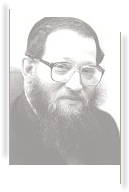
Try and remember the person that had the greatest influence on your life. Maybe
it was a teacher, a relative, a grandparent, a spiritual guide or a military
commander. Notice that this particular person had certain qualities that you
adored, even though he or she wasn't always easy on you. Let's reconstruct those
qualities and put them down on paper:
1. You had no doubt that this
person categorically cared about you and only wanted the best for
you.
2. This person believed in you completely, even when you failed to
believe in yourself.
3. This person always seemed to know how you
feel.
4. This person was a great listener.
from http://lazerbrody.typepad.com/lazer_beams/
When I read this I realized that this is a perfect description of a good sponsor. This is one of the most powerful success tools of the 12 step program. I am so grateful to Hashem for sending me a great sponsor.


































